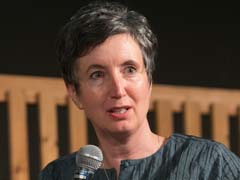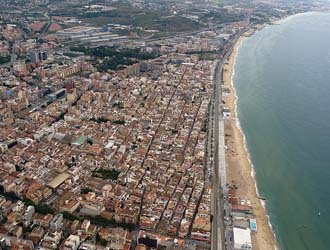The sociologist Suzanne Hall spoke with Nigel Thrift about Cities in the Anthropocene and took part in the Seminar on this subject and from a Mediterranean perspective, which brought together several experts at the CCCB.
For Hall, the condition of public space is measured by the possibility of being together, and there are two ways in which this might happen. The first is when it is necessary to struggle for political causes and to become empowered to call for responsible accountability. Citizens’ struggles raise one of the most important challenges in cities today, namely that their spaces should be in the public realm when today’s prevailing trend is privatisation. The second way is its ordinary use, which is to say the use of public space for not doing anything in particular, as a space of proximity, for sitting down, and looking, and so on.
Suzanne Hall has spent fifteen years working in streets to test these two features—struggle and banality—that are so typical of public space. Hence, her favourite street is one she knows well: Rye Lane, in the south London neighbourhood of Peckham. Lined with shops, and full of people from all over the world, this is a bustling, extraordinary diverse street. However, Rye Lane also showed its ability for calling people together when it was one of the scenes of the protests around London in August 2011.




